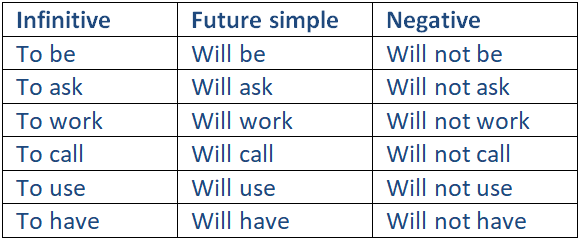

Grammar


Tenses


Present

Present Simple

Present Continuous

Present Perfect

Present Perfect Continuous


Past

Past Simple

Past Continuous

Past Perfect

Past Perfect Continuous


Future

Future Simple

Future Continuous

Future Perfect

Future Perfect Continuous


Parts Of Speech


Nouns

Countable and uncountable nouns

Verbal nouns

Singular and Plural nouns

Proper nouns

Nouns gender

Nouns definition

Concrete nouns

Abstract nouns

Common nouns

Collective nouns

Definition Of Nouns

Animate and Inanimate nouns

Nouns


Verbs

Stative and dynamic verbs

Finite and nonfinite verbs

To be verbs

Transitive and intransitive verbs

Auxiliary verbs

Modal verbs

Regular and irregular verbs

Action verbs

Verbs


Adverbs

Relative adverbs

Interrogative adverbs

Adverbs of time

Adverbs of place

Adverbs of reason

Adverbs of quantity

Adverbs of manner

Adverbs of frequency

Adverbs of affirmation

Adverbs


Adjectives

Quantitative adjective

Proper adjective

Possessive adjective

Numeral adjective

Interrogative adjective

Distributive adjective

Descriptive adjective

Demonstrative adjective


Pronouns

Subject pronoun

Relative pronoun

Reflexive pronoun

Reciprocal pronoun

Possessive pronoun

Personal pronoun

Interrogative pronoun

Indefinite pronoun

Emphatic pronoun

Distributive pronoun

Demonstrative pronoun

Pronouns


Pre Position


Preposition by function

Time preposition

Reason preposition

Possession preposition

Place preposition

Phrases preposition

Origin preposition

Measure preposition

Direction preposition

Contrast preposition

Agent preposition


Preposition by construction

Simple preposition

Phrase preposition

Double preposition

Compound preposition

prepositions


Conjunctions

Subordinating conjunction

Correlative conjunction

Coordinating conjunction

Conjunctive adverbs

conjunctions


Interjections

Express calling interjection

Phrases

Sentences


Grammar Rules

Passive and Active

Preference

Requests and offers

wishes

Be used to

Some and any

Could have done

Describing people

Giving advices

Possession

Comparative and superlative

Giving Reason

Making Suggestions

Apologizing

Forming questions

Since and for

Directions

Obligation

Adverbials

invitation

Articles

Imaginary condition

Zero conditional

First conditional

Second conditional

Third conditional

Reported speech

Demonstratives

Determiners


Linguistics

Phonetics

Phonology

Linguistics fields

Syntax

Morphology

Semantics

pragmatics

History

Writing

Grammar

Phonetics and Phonology

Semiotics


Reading Comprehension

Elementary

Intermediate

Advanced


Teaching Methods

Teaching Strategies

Assessment
Future Simple
المؤلف:
GRAMMARLY.COM
المصدر:
...
الجزء والصفحة:
...
31-3-2021
1775
Simple Future Tense
The simple future is a verb tense that’s used to talk about things that haven’t happened yet.
Example:
This year, Jen will read War and Peace. It will be hard, but she’s determined to do it.
Use the simple future to talk about an action or condition that will begin and end in the future.
How to Form the Simple Future
The formula for the simple future is will + [root form of verb].
Example:
I will learn a new language. Jen will read that book. My brothers will sleep till noon if no one wakes them up. You will see what I mean.
It doesn’t matter if the subject is singular or plural; the formula for the simple future doesn’t change.
But…
There is another way to show that something will happen in the future. It follows the formula [am/is/are] + going to + [root form verb].
Example :
I am going to learn a new language. Jen is going to read that book. My brothers are going to sleep till noon if no one wakes them up. You are going to see what I mean.
The “going to” construction is common in speech and casual writing. Keep in mind though that it’s on the informal side, so it’s a good idea to stick to the will + [root form] construction in formal writing.
How to Make the Simple Future Negative
To make the simple future negative, the formula is will + not + [root form].
Example:
Jen will not quit before she reaches her goal. Make sure you arrive on time tomorrow because the bus will not wait for you. He will not say anything bad about his boss. I will not finish my homework in time for class.
Using the “going to” construction, the formula is [am/is/are] + not + going to + [root form].
Example:
Jen is not going to quit before she reaches her goal. Make sure you arrive on time tomorrow because the bus is not going to wait for you. He is not going to say anything bad about his boss. I am not going to finish my homework in time for class.
How to Ask a Question
To ask a question in the simple future, the formula is will + [subject] + [root form].
Example:
Will Jen finish War and Peace over the summer? Will I have the discipline to study Spanish every day? What will you buy with the money you found?
The formula for the “going to” construction is [am/is/are] + [subject] +going to + [root form].
Example:
Is Jen going to finish War and Peace over the summer? Am I going to have the discipline to study Spanish every day? What are you going to buy with the money you found?
Common Verbs in the Simple Past

The “Going to” Construction

 الاكثر قراءة في Future Simple
الاكثر قراءة في Future Simple
 اخر الاخبار
اخر الاخبار
اخبار العتبة العباسية المقدسة

الآخبار الصحية















 قسم الشؤون الفكرية يصدر كتاباً يوثق تاريخ السدانة في العتبة العباسية المقدسة
قسم الشؤون الفكرية يصدر كتاباً يوثق تاريخ السدانة في العتبة العباسية المقدسة "المهمة".. إصدار قصصي يوثّق القصص الفائزة في مسابقة فتوى الدفاع المقدسة للقصة القصيرة
"المهمة".. إصدار قصصي يوثّق القصص الفائزة في مسابقة فتوى الدفاع المقدسة للقصة القصيرة (نوافذ).. إصدار أدبي يوثق القصص الفائزة في مسابقة الإمام العسكري (عليه السلام)
(نوافذ).. إصدار أدبي يوثق القصص الفائزة في مسابقة الإمام العسكري (عليه السلام)


















